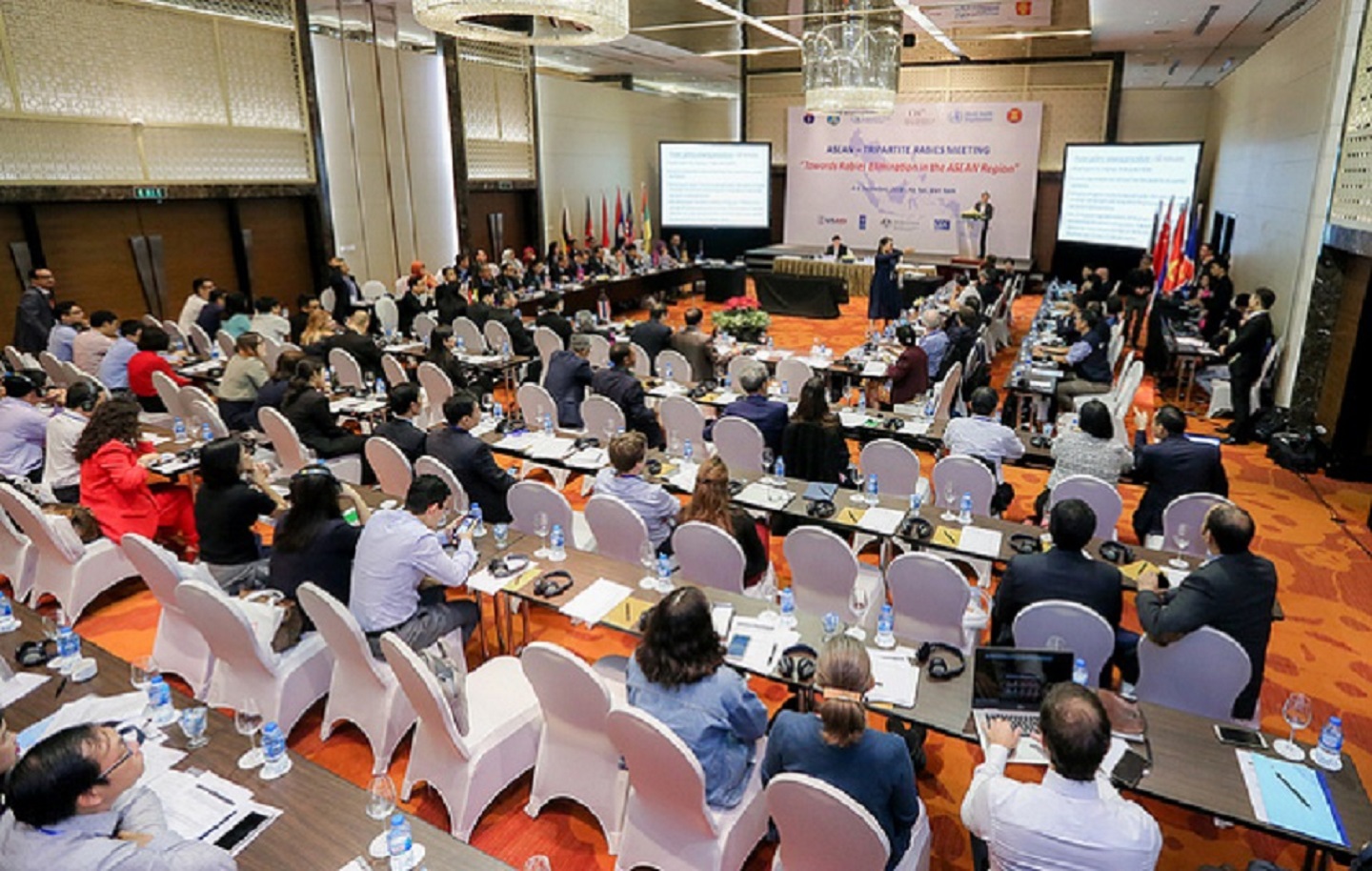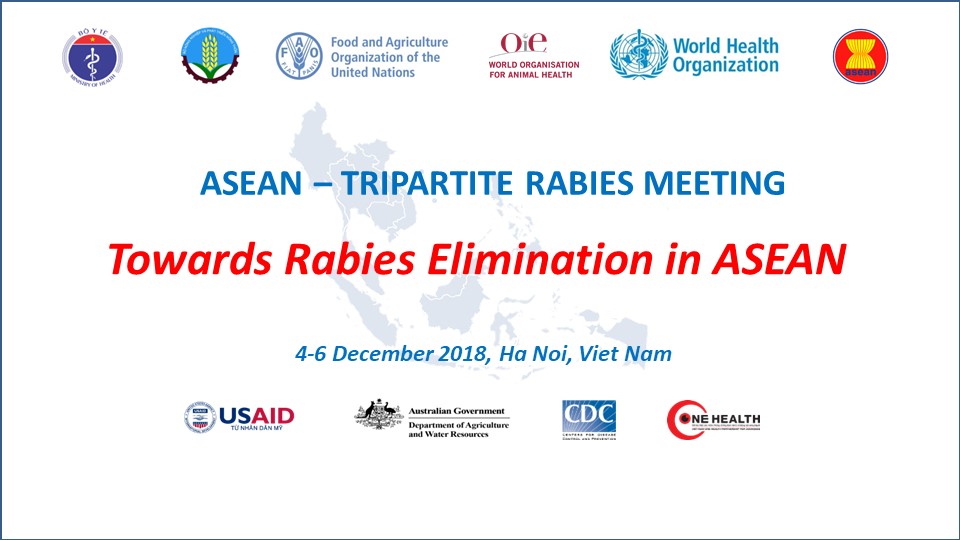Rabies, a zoonosis, continues to be a significant cause of human and animal deaths in many parts of the world, with the largest share of human rabies deaths occurring in Africa and Asia. Successful elimination of human rabies requires a multi-sectoral, collaborative One Health approach that includes prevention of animal rabies through mass dog vaccination, dog population management, better public awareness and community engagement, and improved access to cost-effective and high-quality rabies vaccines.
The ASEAN Rabies Elimination Strategy (ARES), endorsed by health and agricultural ministers of ASEAN countries in 2014, provides a strategic framework for rabies control activities in ASEAN countries. The ARES notes the importance of periodic reviews to clearly highlight not only progress, but also the critical areas for improvement, as a basis to maintain political engagement and momentum toward rabies elimination in the ASEAN region. Vietnam and Indonesia are the co-lead countries for rabies control activities in ASEAN.
Globally, the WHO and OIE, in collaboration with FAO and Global Alliance for Rabies Control (GARC), also known as “United Against Rabies,” called for the elimination of dog-mediated human rabies by 2030. In Asia and the Pacific region, FAO, OIE and WHO (the regional tripartite) works together to support rabies control activities in the region.
To progress towards both the ARES and Global ‘zero by 30’ goals, the regional tripartite in collaboration with the government of Vietnam and ASEAN secretariat organised a 3 days ASEAN-Tripartite rabies meeting towards elimination of rabies in the ASEAN Region’ from 4-6 December 2018 in Hanoi, Vietnam, thanks to the support of the Australian Government and the U.S. Government, with the following objectives:
Share updates and tools from tripartite and other international partners, and identify support requirement to be provided to the countries as well as the roles of agencies, tripartite and/or GARC in rabies control/elimination in individual member countries.
The meeting was attended by 120 participants including government officials from both the human health and animal health sectors of ASEAN member states, observers from Vietnam public health and veterinary departments, organisers and representatives from tripartite and other international partners and NGOs such as Global Alliance for Rabies Control (GARC), Mission Rabies, Four Paws, and US CDC. Besides sharing country key success stories and limitations, group exercises identified country level priorities and needs to address them for moving ahead towards rabies elimination. The international organisations and NGOs presented many tools available and processes being practiced elsewhere for adoption by countries in progressing towards their efforts to achieve the stated goals.
The ASEAN member countries recommended to implement the following priority areas to expedite achievement of goals of ARES:

